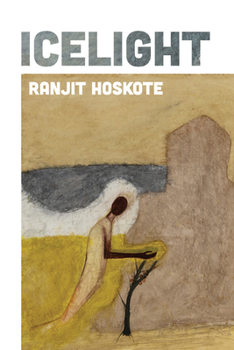Icelight
Select Format
Select Condition 
Book Overview
Set in an age of ecological catastrophe, Icelight eloquently accepts transience yet asserts the robustness of hope
Icelight, Ranjit Hoskote's eighth collection of poems, enacts the experience of standing at the edge--of a life, a landscape, a world assuming new contours or going up in flames. Yet, the protagonists of these poems also stand at the edge of epiphany. In the title poem, we meet the Neolithic cave-dweller who, dazzled by a shapeshifting nature, crafts the first icon. The 'I' of these poems is not a sovereign 'I'. A questing, questioning voice, it locates itself in the web of life, in relation to the cosmos. In 'Tacet', the speaker asks: "What if I had/ no skin/ Of what/ am I the barometer?" Long committed to the Japanese mono no aware aesthetic, Hoskote embraces talismans, premonitions, fossils: active residues from the previous lives of people and places. Icelight is a book about transitions and departures, eloquent in its acceptance of transience in the face of mortality.
Aubade
Rumours of wind, banners of cloud.
The low earth shakes but the storm
has not arrived. You pack
for the journey, look up, look through
the doors at trees shedding their leaves
too soon, a track on which silk shoes
would be wasted, a moon
still dangling above a boat.
Wearing your salt mask, you face
the mulberry shadows.
The valley into which
you're rappelling
is you.
Related Subjects
Poetry




